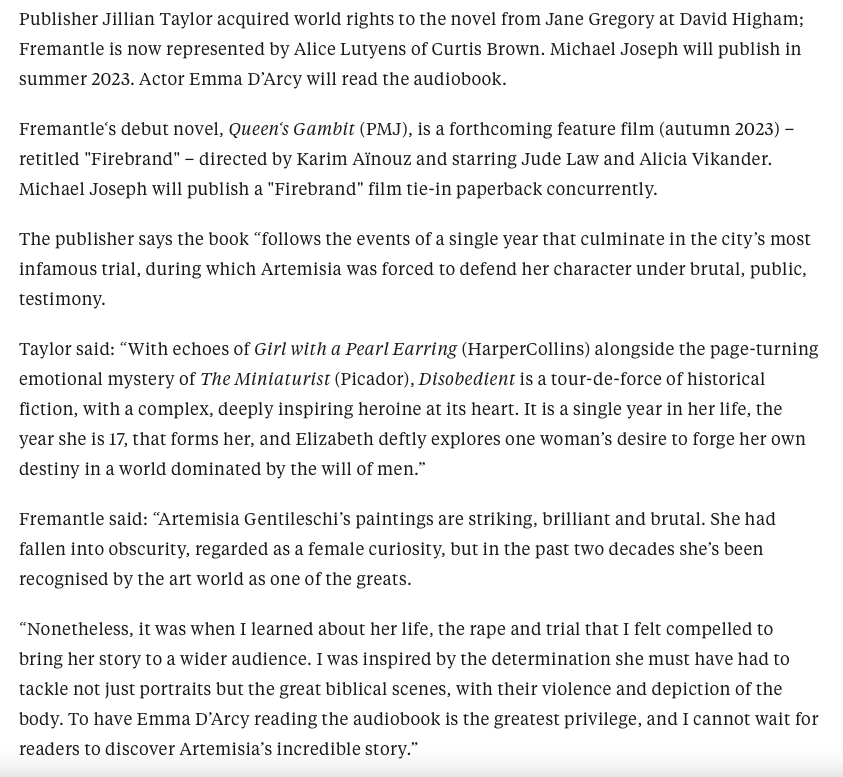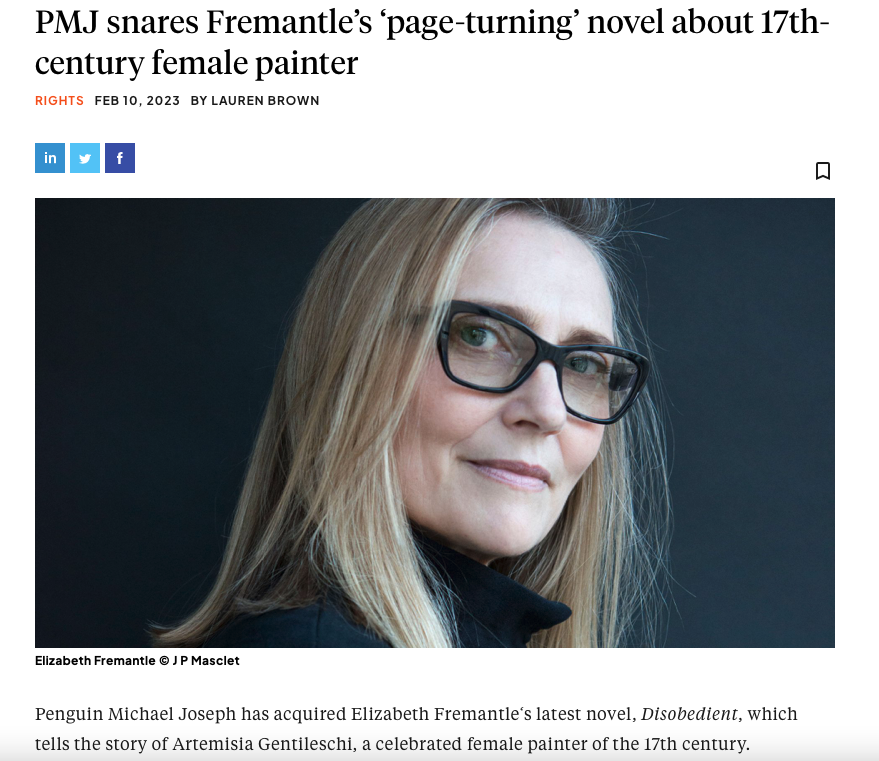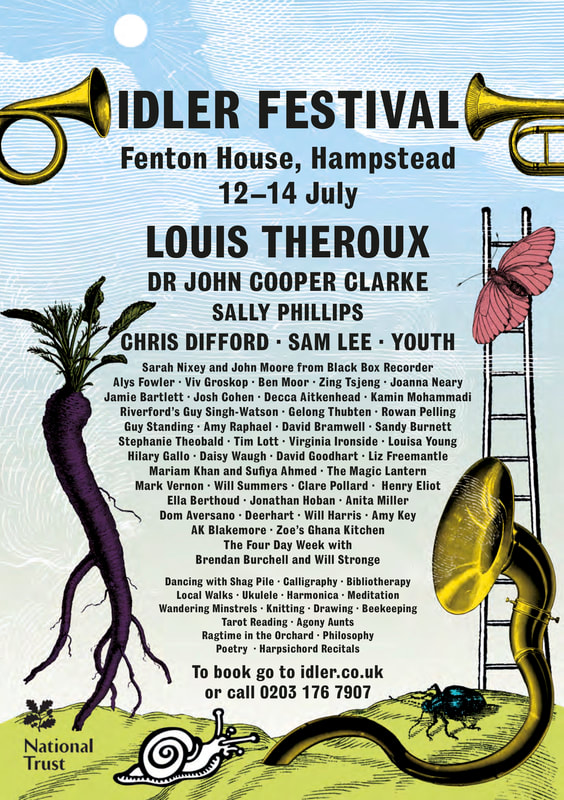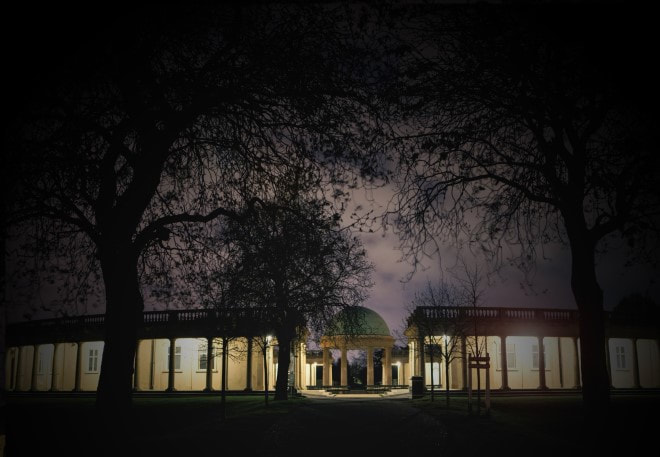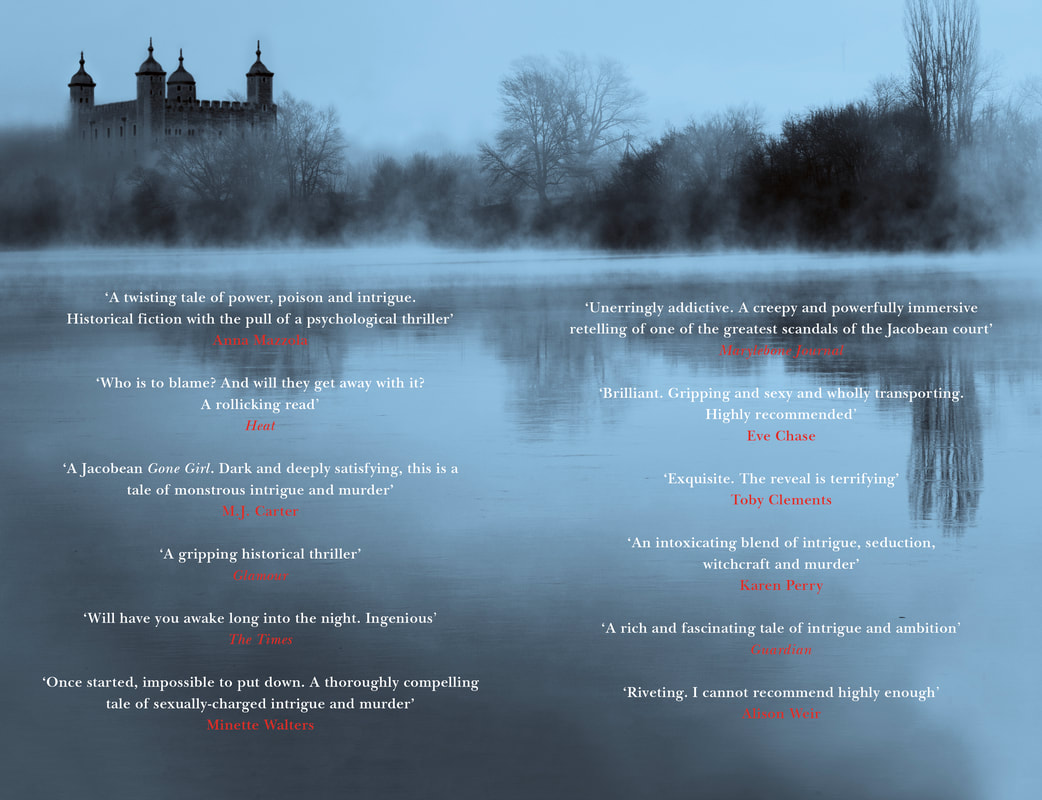The Times Books of the Year www.thetimes.co.uk/article/the-best-historical-fiction-books-of-2023-r256pfmtn
Author Insight...
Listen to Elizabeth on Woman's Hour, BBC Radio 4, talking about Katherine Parr with Jane Garvey and historian, Gemma Allen.
Elizabeth on SISTERS OF TREASON and why she chose to write about the Grey sisters: Shiny New Books
Elizabeth on Katherine Parr, Elizabeth I and how Emily Dickenson had a part to play inspiring a scene in QUEEN'S GAMBIT on Literary New England Online Radio
'Elizabeth Fremantle: Tea, Toast and Not Losing Your Head' An interview exposing Elizabeth's darkest writing secrets.
Writer's Hub: interview with Elizabeth Fremantle
On Slippery Spaces and Not Being an Historian: Waterstones blog
Elizabeth on SISTERS OF TREASON and why she chose to write about the Grey sisters: Shiny New Books
Elizabeth on Katherine Parr, Elizabeth I and how Emily Dickenson had a part to play inspiring a scene in QUEEN'S GAMBIT on Literary New England Online Radio
'Elizabeth Fremantle: Tea, Toast and Not Losing Your Head' An interview exposing Elizabeth's darkest writing secrets.
Writer's Hub: interview with Elizabeth Fremantle
On Slippery Spaces and Not Being an Historian: Waterstones blog
WATERSTONES SAYS – warning: this book may well take over. your summer. Think Gone Girl meets The Miniaturist.
PRAISE FOR ELIZABETH FREMANTLE
Fremantle has taken a fascinating poisoning case, a toxic blend of glamour, intrigue and ambition, and breathed new life into it. I doubt if I shall read a more deliciously sinister historical novel this year (Andrew Taylor) • Beautifully written... what Hilary Mantel fans should read while they wait for the final part of her trilogy (The Bookseller) • A top-notch literary thriller The Telegraph • A novel of extraordinary power (Books Monthly) • Spellbinding (People Magazine) • A sumptuous epic saturated in the politics of the time (Metro) • Five star historical fiction (Daily Mail) • A major new voice in historical fiction (The Bookseller) • A powerful debut (The Guardian)
Fremantle has taken a fascinating poisoning case, a toxic blend of glamour, intrigue and ambition, and breathed new life into it. I doubt if I shall read a more deliciously sinister historical novel this year (Andrew Taylor) • Beautifully written... what Hilary Mantel fans should read while they wait for the final part of her trilogy (The Bookseller) • A top-notch literary thriller The Telegraph • A novel of extraordinary power (Books Monthly) • Spellbinding (People Magazine) • A sumptuous epic saturated in the politics of the time (Metro) • Five star historical fiction (Daily Mail) • A major new voice in historical fiction (The Bookseller) • A powerful debut (The Guardian)
The descriptive power of the novel transported me straight to the heart of Renaissance Rome with some passages so beautiful I had to read them twice. Fremantle’s Artemisia is passionate, brilliant, absolutely true to herself and is now one of my favourite fictional characters of all time. ELODIE HARPER (bestselling author of The Wolf Den)
I was so glad to see Artemisia's story told, for the dignity, honour and recognition given to her bravery and talent in this novel, and I was swept away in the lush, evocative prose that transported me to a painter's studio in Rome in the 1600s through the eyes of a defiant and determined young woman. JENNIFER SAINT (bestselling author of Ariadne & Elektra)
An exhilarating novel. Through effervescent prose, Elizabeth Fremantle brings the story of artist Artemisia Gentileschi to life. Gripping, captivating, and consistently enlightening, Disobedient firmly places Gentileschi as one of the greatest artists and heroines in history.
KATY HESSEL (bestselling author of The Story of Art Without Men)
KATY HESSEL (bestselling author of The Story of Art Without Men)
Publicity Events FOR THE POISON BED – Summer 2019
|
4th July – LONG CRENDON LIBRARY
20 High St, Long Crendon, Aylesbury HP18 9AF |


